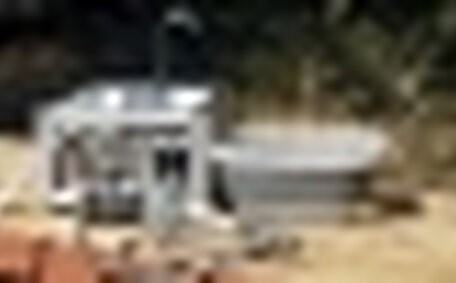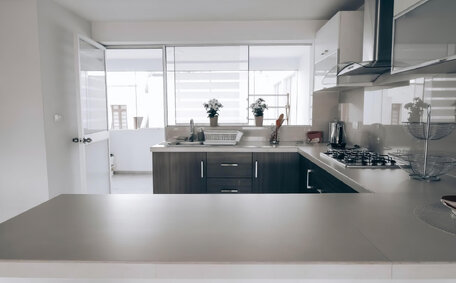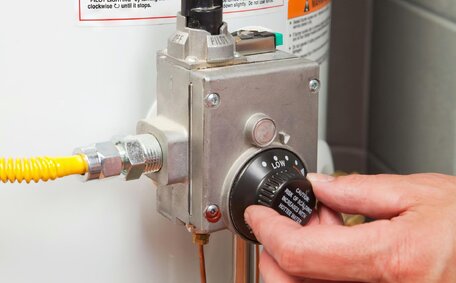Why Drain Maintenance is Important
regular plumbing maintenance is crucial to prevent clogged drains and keep them functioning properly. To prevent your pipes from clogging, regularly remove hair, grease, and soap scum. If left unchecked, drain blockages can cause backed up sinks, tubs, and toilets, resulting in inconvenient and unsanitary conditions.
A weekly boil water or baking soda flush helps dissolve buildup and prevent full blockages.
Unchecked tree roots can invade and damage pipes, necessitating occasional professional inspections and drain clearance.
Clearing blocked drains can cost between $100 and $500, emphasising the cost-effectiveness of preventative steps. A well-maintained plumbing system lasts longer, obviating pricey repairs or replacement, and ensuring efficient sewer network operation.
Detecting Early Signs of Drain Blockages
Early detection of drain problems is crucial to prevent complete blockages. Indications of a potential blocked drain include:
- Unusual gurgling or bubbling sounds from your drains.
- Unpleasant odours of sewage emanating from drains.
These issues can escalate if unaddressed, with outcomes like needing drain snakes, hydro jetting, or emergency plumber services. Immediate action when noticing sluggish drainage can prevent significant issues.
At the first sign of a blockage, simple remedies include a boil water flush, plunging, or a baking soda and vinegar mixture. If these DIY methods fail, consider enlisting professional services.
Maintaining Bathroom Sink Drains
Regular maintenance is crucial in preventing your bathroom sink drains from clogging. Here are some tips:
- Remove hair and soap residue from drains after use to prevent buildup. Consider putting a drain catch over the drain to catch stray hairs.
- A weekly boil water flush down the drain can melt grease and eliminate soap scum, preventing blockages. Baking soda and vinegar are also effective against buildup.
- Use a plunger or drain snake periodically for clearing blocked drains and keeping water flowing freely.
- Avoid pouring cooking oils or any grease and fat down bathroom sinks as they solidify and cling to pipes.
- Consider using natural drain cleaner recipes like pouring hot water down your drains, or opting for baking soda, vinegar or enzymatic cleaners versus harsh chemicals.
- To combat persistent odours from bathroom sinks, treat with 1/2 cup baking soda followed by 1 cup vinegar, let it sit covered for 5-10 minutes, and then flush with hot water.
Staying on top of bathroom sink drain maintenance prevents the inconvenience where you could end up with a fully clogged drain, necessitating a call to an emergency plumber. A bit of weekly prevention goes a long way.
Maintaining Kitchen Sink Drains
Regular maintenance is necessary to keep your kitchen and bathroom sink drains unblocked. Here are some tips:
- Use a drain strainer to catch food particles and other debris. Dispose of captured waste into your trash regularly.
- Avoid pouring fats, oils, and coffee grounds down drains. Let them solidify and dispose in the trash instead.
- Using a drain snake every three months can efficiently remove hair and grime buildup.
- Enzyme cleaners or regular boiling water flushes are preferable to harsh chemicals for drain cleaning.
Promptly addressing any sluggish drainage in kitchen sinks can prevent full blockages. Doing routine drain care protects pipes from clogs that can lead to nasty backups in your sewer and expensive plumbing repairs, and if a problem arises, don’t hesitate to call us.
Maintaining Other Household Drains
It’s important to keep all water systems in a home clear and flowing freely, including laundry and floor drain systems. Without regular cleaning, laundry and floor drain pipes can become clogged with materials like hair, lint, and soap scum.
For laundry drains, secure the washing machine hoses and install drain catchers. Monthly, flush the tub drain with boiling water to dissolve detergent buildup and dislodge debris.
For floor drains, regularly remove debris and hair using a drain snake or hook. Pour a baking soda and vinegar treatment down floor drains monthly to break up grime. Place fine mesh drain covers over floor drains to keep out large particles.
An annual professional inspection can uncover any persisting drain clogs.
Left unmanaged, blocked laundry and floor drains can lead to foul odours, flooding, water damage, and mould growth. Take care of maintenance to keep these drains free-flowing and avoid costly plumbing repairs down the line.
Routine DIY Drain Maintenance
Performing simple, regular routine maintenance is the best way to keep drains clear and prevent clogs. Here are some easy DIY routines to follow:
- Weekly, start with 1/2 cup baking soda down the drain, add 1 cup white vinegar, let fizz, and then flush with hot water after 5-10 minutes.
- Use a plunger on each drain monthly to dislodge debris and keep water flowing.
- Flush drains weekly with a pot of boiling water to melt grease, hair, and soap scum buildup.
- Every 2-3 months, employ hand-crank or electric drain augers to eliminate blockages and enhance water flow.
- Remove drain screens and pipes under sinks annually to clean out any accumulated grime or mineral deposits.
- Consider preventative enzyme drain cleaners instead of harsh chemicals.
Being vigilant about easy DIY drain care prevents serious clogs requiring a plumber. A bit of weekly maintenance goes a long way for worry-free drains.
Using Baking Soda and Vinegar
Using baking soda and vinegar is a straightforward and impactful DIY drain cleaning method. Here’s how to use this dynamic duo:
- Pour half a cup of baking soda down the drain.
- Let sit the mixture for 5-10 minutes to work its magic, then rinse with very hot water to flush away debris.
Repeating this weekly keeps drains clear of grease, hair, soap scum and other gunk. Baking soda is a mild abrasive that scrubs away buildup, while vinegar dissolves grime and removes odours. Together, they break down and dissolve clogs without damaging pipes.
In cases of severe slow drains, use 1 cup baking soda and 2 cups vinegar, covering the drain for 30 minutes before rinsing for an intensified reaction. This method is suitable for all household drains.
Boiling Water Flushes
Boil approximately 500 mL of water and pour it down the drain swiftly to dissolve grease and grime in blocked drain pipes. Exercise caution when handling boiling water to prevent burns.
Direct the boiling water stream at the drain’s centre to help sterilise and deodorise the drains and pipes.
Repeating this weekly helps scour and flush away coating buildup before it turns into a full clog. Just avoid boiling water flushes on completely blocked drains, as forcing water against a total clog can potentially damage pipes. Repeating this weekly helps scour and flush away coating buildup before it turns into a full clog.
Cleaning with a Plunger
Employing a plunger is a trusted technique to dispel minor drain blockage in your sink. When tackling a sink clog, it’s important to use a cup plunger rather than a flanged toilet plunger. Here are some tips for proper plunger use on sinks:
- Fill the sink halfway with water - this allows the plunger to form a seal.
- Place the plunger over the drain opening and ensure the cup forms an airtight seal on all edges.
- Quickly plunge up and down with force about 10-15 times - This action is often enough to dislodge material that cause blockage.
- Try using a few repetitions, removing the plunger to check if water is draining properly after each round.
- Flush with hot water after plunging to rinse away any loosened debris.
Avoid using harsh chemical drain cleaners with plungers, as the fumes can create dangerous reactions in any blocked pipes. Regular plunging helps dislodges clogs due to hair, soap residue, and food waste.
For tough clogs, like fully blocked drains, professional assistance from a blocked drain plumber such as a drains Adelaide expert may be essential.
Using Drain Strainers and Filters
Using drain strainers and filters is an effective way to stop debris from entering drains and causing potential clogs. Drain strainers are metal or plastic devices that fit over sink drain openings to catch food scraps, hair, and other particles before they can go down the drain.
For kitchen sinks, using a drain strainer prevents one of the most common causes of blocked drains like food waste, grease, and cooking oils from accumulating in pipes. Empty and clean strainers regularly before debris builds up. Mesh drain filters also attach under sinks to screen out solids.
In bathrooms, hair catchers and drain screens prevent loose strands from washing down drains and tangling into clogs. These accessories are inexpensive and easy to install. Just be sure to routinely remove built up debris.
For laundry sinks, lint screens trap stray lint and fibres from entering washing machine drainage pipes. This prevents accumulation that can obstruct pipes. Remember to clean lint screens after each load.
Routine cleaning of strainers and filters is an easy and rapid preventive measure against plumbing issues, complemented by periodic baking soda flushes and plunging for thorough maintenance.
When to Call a Professional Plumber
Despite preventative DIY maintenance, situations like sewage backups, leaky pipes, or water damage necessitate an immediate call to a professional plumber to halt the water supply and mitigate further damage.
If you’ve tried various at-home solutions and clogs persist, it’s best to seek expert assistance.
Other scenarios when professional help is required include:
- Severe drain blockages resistant to standard plungers or augers.
- Multiple drains in the home backing up.
- Bad sewage odours coming from drains, even after cleaning attempts.
- Leaking, cracked or severely clogged pipes found during inspection.
- Overflowing sinks or toilets.
- Drain line blockages caused by tree roots or collapsed pipes.
Intense drain clogs needing hydrojetting, drain snakes, or major pipe repairs should be managed by experts like those at Riverwood Plumbing to avoid injury and further damage. Nevertheless, early detection and regular maintenance remain smart DIY measures.
Slow drainage and gurgling sounds persisting af Recurrent sluggish drainage and clogs after DIY attempts suggest it’s time to consult a professional plumber, especially if multiple drains are affected, possibly indicating a compromised main sewer line.
Professional Drain Cleaning Methods
While regular DIY maintenance can prevent minor clogs, more serious blockages often require professional drain cleaning services. Plumbers have specialised equipment and methods for clearing stubborn obstructions and keeping pipes flowing freely.
Hydrojetting is a prevalent professional drain cleaning method. This involves using high-powered water jets to scour the pipe interior and propel blockages out. Hydrojetting can remove years of accumulated gunk and debris that standard snaking cannot dislodge.
For tough clogs, plumbers may also use motorised drain augers or snakes. A rotating metal cable is fed down the pipe, chewing through and grabbing hold of the obstruction to pull it out. Advanced camera snakes allow plumbers to view the blockage and pipe condition for targeted clearing.
Chemical drain cleaners containing caustic compounds like lye or sulphuric acid are sometimes employed for corroding or dissolving clogs. However, chemical cleaners can damage pipes, so professional judgement on their suitability is required.
If drain roots have invaded and cracked pipes, plumbers can perform pipe relining rather than full replacement. Epoxy resins are blown into damaged pipes to coat the interior and seal leaks.
For extensive drain cleanouts, high-pressure jet flushing vehicles are brought onsite. They feature powerful water jets on long hoses for clearing blockages in sewer main lines and outdoor drains.
With professional-grade equipment, skills and protective gear, plumbers can tackle severe clogs and restore free drainage. Don’t hesitate to call the team at Riverwood Plumbing if DIY methods can’t resolve persistent drain issues.






